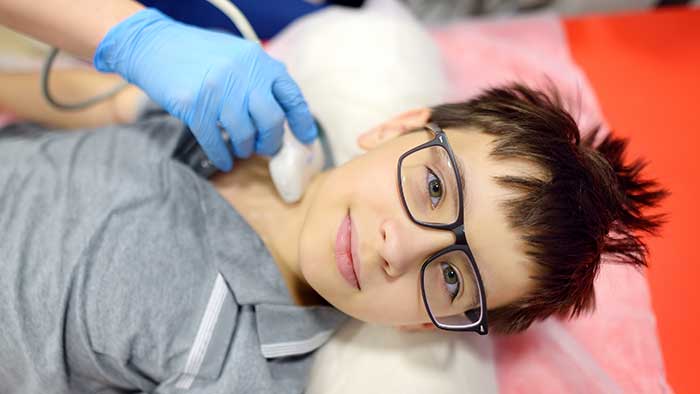Thyroid problems can appear at any stage of life, from newborns to the elderly, in men and women. The gland located in the front part of the neck produces the hormones T3 (triiodothyronine) and T4 (thyroxine), which affect the function of vital organs, such as the heart, brain, liver and kidneys. They interfere with the growth of children and adolescents, the regulation of menstrual cycles, fertility, weight, memory, concentration, mood and emotional control, ensuring the body’s balance. Prevention is the best way to maintain its full functioning.
Thyroid monitoring begins shortly after birth. The heel prick test, mandatory throughout the country, can detect congenital hypothyroidism, which is low production of T4 hormone. When undiagnosed and untreated, it is one of the most common causes of delayed mental development, affecting one in every four thousand newborns, according to the Ministry of Health.
In the following stages of life, care must continue. “In childhood and adolescence, it is very important to measure TSH, free T4 and antithyroid antibodies. Thyroid ultrasound can identify nodular formations and inflammatory processes”, explains endocrinologist Luciana Naves, from Sabin Diagnóstico e Saúde.
The doctor warns that thyroid disorders in children and adolescents can lead to nutritional losses, such as changes in growth and development, in addition to affecting cognition and learning. “Laboratory and imaging tests help in diagnosing and defining the cause of thyroid dysfunction, which can guide the choice of the best treatment”, points out Luciana.
Hyperthyroidism
Excessive production of thyroid hormones, known as hyperthyroidism, or insufficient production, hypothyroidism, can be treated. In hyperthyroidism, the body works too quickly: the heart races, the intestine loosens and the person becomes agitated. In children and adolescents, there is usually an abrupt growth spurt. Treatment may include medications, radioactive iodine and surgery, depending on the characteristics of the disease.
Hypothyroidism
Hypothyroidism can compromise growth, impair memory, cause drowsiness and weight gain, among other symptoms. Treatment involves replacing the hormone levothyroxine, which must be taken for life. Other thyroid disorders are goiter, which can manifest itself through abnormal growth of the gland or through nodules, caused by a lack of iodine in the diet, inflammation, tumors or infections. Thyroiditis (inflammatory diseases), cancer and Graves’ disease (autoimmune) are other diseases related to the gland.
International Thyroid Day, May 25, aims to raise awareness of the multiple factors, genetic and environmental, that contribute to the development of thyroid disease. “The date serves to alert patients to the presence of symptoms suggestive of these dysfunctions, which should be clarified after appropriate medical consultation”, adds the endocrinologist at Sabin Diagnóstico e Saúde.






